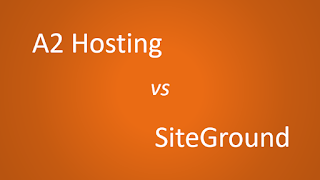Top 7 reasons why your SEO ranking suddenly dropped
Here are the top 7 reasons for a sudden ranking drop, with a list of symptoms, recovery tips, and prevention methods for each.
1. Manual search engine penalty.
Manual actions are imposed by human reviewers at Google when they determine that "pages on your site are not compliant with Google's webmaster quality guidelines". There are various reasons for manual actions; the most common are: hacked site, user-generated spam, unnatural backlinks, thin content, and cloaking.
2. Algorithm update.
First things first, an algorithm update can hit your site in two ways. First, it may be a new algorithm (or a major update of an older algorithm) released by Google.
Second, it may be one of the continuous refreshes of the known algos. Now that Google's Penguin algorithm is real-time, and Panda's part of the search engine's core algorithm (and thus likely refreshes more frequently than before), Penguin and Panda are the major updates to look out for, regardless of your niche and business type.
3. Competitors
Rankings are a zero sum game: if a certain page's ranking improves, at least one other page must go down in the SERP. This is the reason why SEO is a never-ending process, rather than a one-off effort: even if you get to the very top, competitors can outrank you any minute by improving their pages
4. Lost links
Just as acquiring new, low-quality links can impact your performance in the SERPs, so can losing the high-quality ones you already have. Particularly, if your site doesn't have a lot of links, the links you lose can have a substantial impact on your rankings.
5. Site redesign, migration, or other changes
Making substantial changes to your site — such as redesigning it, changing your platform, or moving to HTTPS — will often not go the way you planned. A small oversight may have serious consequences for your SEO, and result in a substantial ranking drop
6. Negative SEO
Negative SEO is a set of activities aimed at decreasing a competitor's site rankings in search engines' results. These activities may include knowingly building spammy, unnatural links to the site, content scraping, and even hacking the site.
7. User behavior changes
Before I get down to the gist of this one, I have to say the impact of user behavior on rankings is a controversial topic in the SEO space. Google's been switching back on forth from "we use it", "we don't", "maybe we do", "we don't use it directly, but we sort of do indirectly", etc.
Related: Top SEO Tools you must try in 2017
That said, I am a strong believer that user behavior does impact rankings, and in a very direct way. We've seen it on our own sites, multiple real-life experiments have suggested it, and numerous Google patents imply it. The one user behavior factor that likely has the biggest weight is your SERP click-through rate.
Everyone can get outranked by a competitor and drop out of page one when an unforeseen Google update comes out; but at least now you know how to reclaim your top positions like a superstar. Quickly, calmly, and with style.



